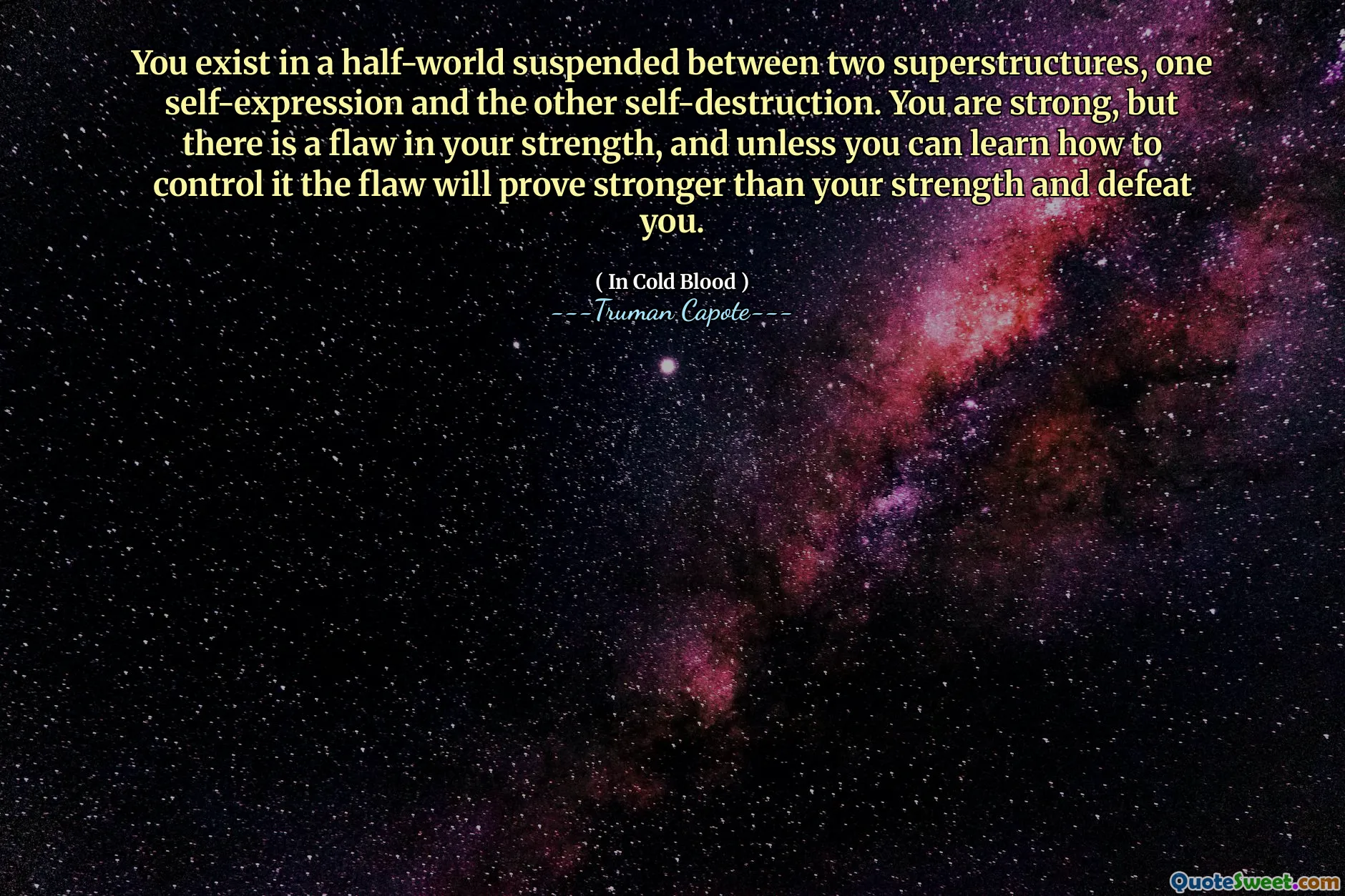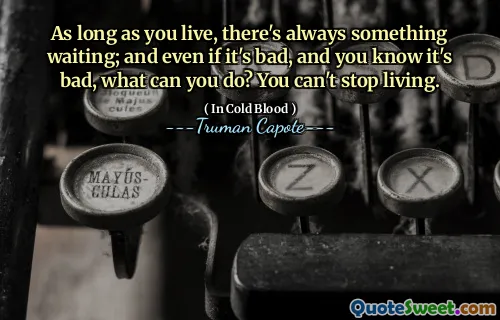
You exist in a half-world suspended between two superstructures, one self-expression and the other self-destruction. You are strong, but there is a flaw in your strength, and unless you can learn how to control it the flaw will prove stronger than your strength and defeat you.
[Markdown format] This quote delves into the complex duality inherent in human nature. It portrays life as a fragile balance, a delicate interplay between expressing our true selves and the potential for self-destructive tendencies. The notion that strength can harbor a flaw resonates deeply, reminding us that confidence or resilience are not infallible but require mindful management. When we think of self-expression, we often envision a positive liberation—voicing our thoughts, emotions, and identity. Yet, unchecked, this same drive can morph into impulsiveness or rebellion, leading to chaos or loss of control.
Conversely, the mention of self-destruction might initially invoke negativity, but it also signals the inner battles we face—self-doubt, destructive habits, or harmful impulses that lurk beneath the surface. Recognizing that we inhabit a "half-world"—a liminal space—suggests that human existence is inherently incomplete or ongoing, an endless effort to synchronize these two powerful forces. The acknowledgment that flaw can overpower strength stresses the importance of self-awareness and discipline.
Learning how to control our flaws becomes crucial if we are to navigate life successfully. Not only does this require introspection but also the conscious development of resilience that can withstand temptations toward self-harm or destructive behavior. Ultimately, the quote urges us to accept our vulnerabilities as part of our strength, emphasizing that true power lies in mastering our inner conflicts rather than ignoring them. This understanding fosters growth, self-acceptance, and the capacity to persist amid the paradoxes of the human condition.
(In Cold Blood) - author: '---Truman Capote---'.







